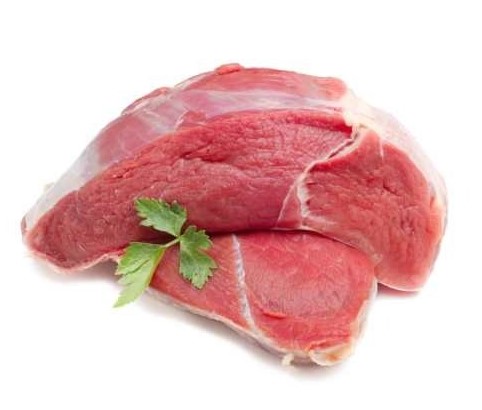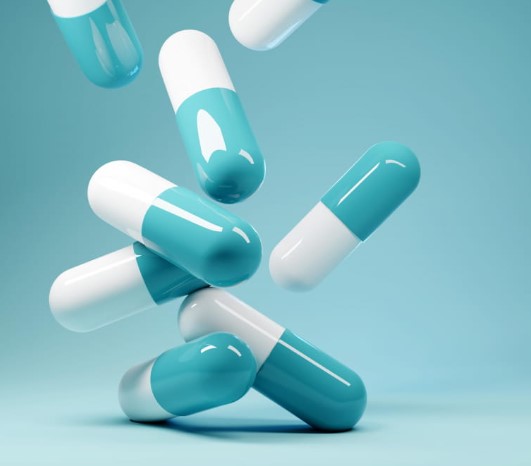Antibiotics in meat - causes and consequences

Photo is illustrative in nature. From open sources.
Antibiotics in meat is a problem that arises from the widespread use of these drugs in animal husbandry. Antibiotics are used to prevent and treat diseases in animals such as respiratory infections, diarrhea, and other bacterial infections.
However, when animals receive antibiotics , they also end up in the meat we eat. This can lead to serious consequences for human health. When we eat meat that contains antibiotics, we also consume bacteria that can become resistant to antibiotics. This can complicate the treatment of bacterial infections in humans.
In addition, consumption of meat containing antibiotics can lead to allergic reactions and other diseases. Some studies have linked meat consumption high in antibiotics to the risk of cancer and cardiovascular disease.
However, some experts argue that the use of antibiotics in livestock is necessary to ensure food safety. They point out that without the use of antibiotics, animals can get sick and die, leading to food loss and higher meat prices.
To address this problem, many countries have already implemented laws that restrict the use of antibiotics in livestock. Some companies have also begun producing meat that does not contain antibiotics.
Overall, the use of antibiotics in meat is an issue that needs attention. A balance must be found between ensuring food safety and protecting human health. In addition, consumers should be more mindful of what they eat and choose foods that do not contain antibiotics.
Read together with it:
- I found a woman who is not embarrassed by my appearanceI often read stories on this site and decided to confess myself. I don’t know how to speak beautifully, and I can’t, to be honest. So don't judge harshly.I was born into a complete family. Father ,mother . Everything is like everyone else. My childhood didn't go well. The father was a domestic tyran...
- The husband decided that it was better to get a divorce than to look for a jobMy husband and I have been married for 5 years. We moved to another city and rented an apartment here. Two years later my beloved appeareddaughter . We lived not without quarrels, but we tried not to find outrelationship with a child. A year agoMy husband was laid off at work and scandals began to h...
- Nobody wants to talk to meI am from Moscow. I don't understand why people don't want to communicate with me. I study at an institution where all (okay, not all, but many) students have similar interests.No, I'm not being ignored. I communicate with some people who are happy to see me. But they don't consider me friends. They...
- Husband's unceremonious brotherI already wrote my story about my brother herehusband who constantly comes to visit. At that time, I made it clear to my husband’s brother that I considered his visits too frequent and his behavior unacceptable. Then I talked to my husband, gently. He reacted calmly.3 weeks passed in peace and quiet...
- Mother-in-law violated the will of her late daughter-in-lawI leftmarry a man who has 2 marriages behind him, the first, as usual, broke up due to his youth, the second ended in great misfortune -wife died of cancer.From this marriage there was a little girl left, whom I later adopted. There are two children from his first marriage, whom theyMom kicked them ...
- Mom considers me a second-class citizenI am very offended by my mother.I had a bad luckan affair with one man. I am 26 years old, he is 38. We met on vacation. Hismother runs a hotel for tourists by the sea. He helps her, and I came to rest with them on the advice of friends.It so happened that I really liked him. He is beautifula man an...
- Who is right?I don’t understand at what point a separate budget happened in our family, probably when I returned from my second maternity leave. Until this moment this had not happened, maybe because I earned a lot.Now I am working, the work is very difficult, it takes a lot of effort and time, I often have to w...
- Parents do not want to work and demand to support themI come from a large family (7 children, parents and grandmother). To be honest, I’m ashamed to write here about my parents, because I love them. But, at the moment I need advice.Dad is 46 years old and mom is 42. When dad was working,mom was staying at home. When I was in 9th grade, my dad got sick ...
- My parents ruined my life with their selfishness.I'm the only onethe child is with my parents and I always heard that it was difficult for them to even imagine that I could leave them, so I stayed to study and then work in my hometown, although the prospects in the capital were much better. But I got used to obeying my parents in everything, and w...
- How can I influence my sister not to borrow money?My sister has an addiction. Borrows from friends and relativesand does not return the money . He constantly lies to them that he will return it in a few hours or days.The amounts are small, but in total the debt has become impressive. Several years ago it turned out that she also had debts at work. ...

